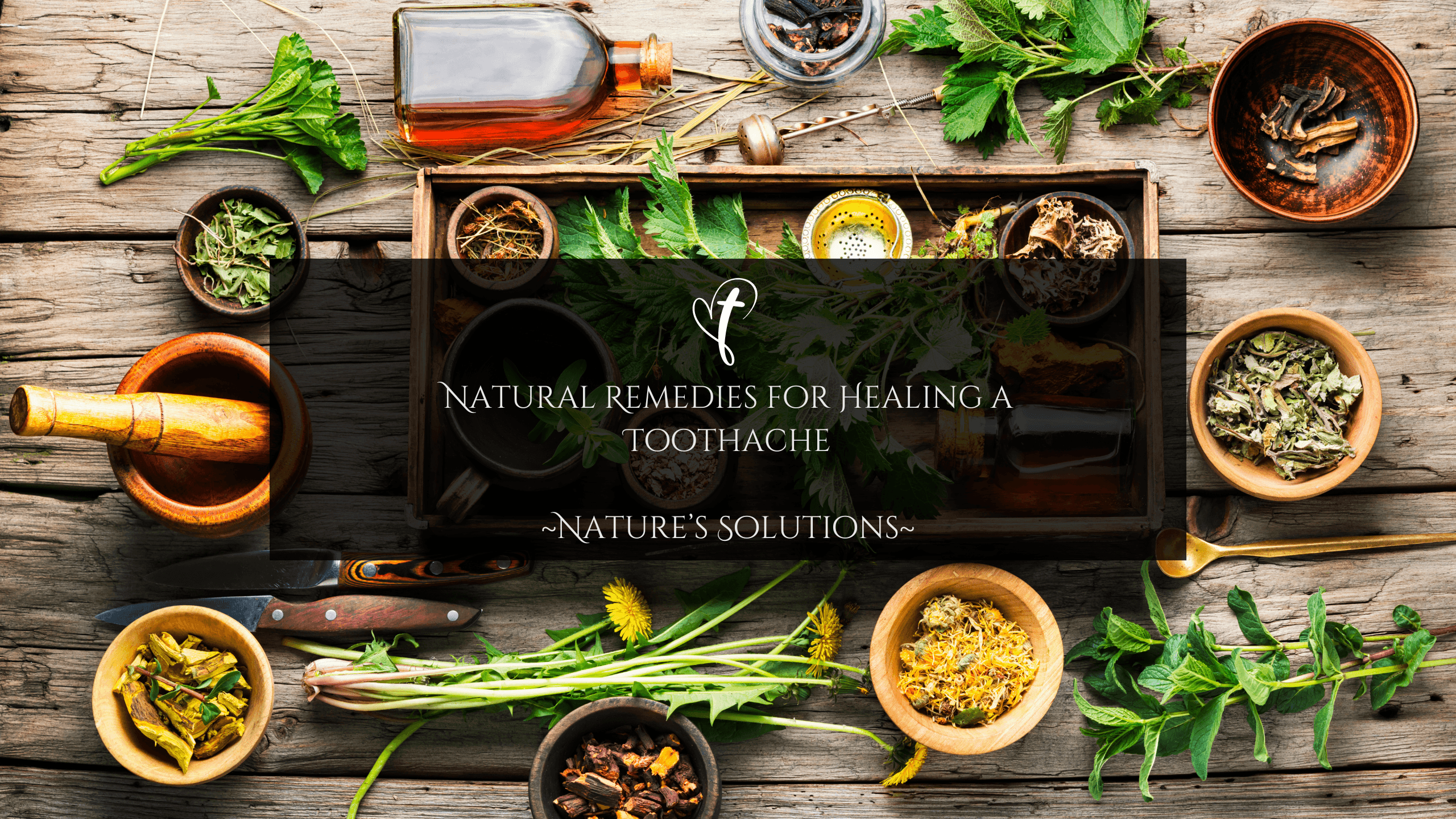
Natural Remedies for Healing a Toothache - A Gentle Approach to Relief.
Natural Remedies12th of June, 2024
Toothaches can be one of the most debilitating forms of discomfort, often interrupting our daily lives and making even simple tasks feel daunting. Whether caused by cavities, gum disease, or a cracked tooth, a toothache can leave us desperate for relief. While seeking professional dental help is always recommended, many turn to natural remedies for immediate comfort. In this blog post, we’ll explore some effective natural remedies that can help alleviate toothache pain, allowing you to manage discomfort until you can see your dentist.
1. Clove Oil: Nature’s Anesthetic
Clove oil has been used for centuries as a natural remedy for tooth pain, thanks to its active ingredient, eugenol, which acts as a natural anesthetic and antibacterial agent. To use clove oil for toothache relief:Apply a small amount of clove oil to a cotton ball. Gently place the cotton ball on the affected tooth for about 20-30 minutes. Repeat this process a few times a day as needed. Always use clove oil in moderation, as excessive use can cause irritation to the gums.
2. Salt Water Rinse: Soothing and Cleansing
A warm salt water rinse is a simple and effective way to ease dental pain. Salt helps to reduce inflammation and draw out infections, making it an ideal remedy for toothaches.Mix half a teaspoon of salt in a glass of warm water. Swish the solution around in your mouth for about 30 seconds, then spit it out. Repeat 2-3 times a day, especially after meals. This rinse can provide immediate relief while also helping to cleanse your mouth of bacteria.
3. Garlic: Antimicrobial Powerhouse
Garlic is well-known for its health benefits, including its potential to fight infection and reduce pain. The compound allicin found in garlic has powerful antimicrobial properties.Crush a clove of garlic and mix it with a little salt to create a paste. Apply the paste directly to the affected area for about 10-15 minutes. Rinse your mouth afterward. You can also chew on a raw garlic clove to release the allicin for additional pain relief.
4. Onion: Nature's Antibiotic
Onions are not only a staple in the kitchen but also hold strong antibacterial properties. Chewing on raw onion or placing a piece on the affected tooth can help alleviate pain and kill bacteria.Take a small piece of raw onion and chew it for a few minutes. Alternatively, place a piece of onion directly on the tooth for around 30 minutes. Although the taste may not be pleasant, the potential relief can be worth the effort.
5. Peppermint Tea: A Soothing Option
Peppermint tea is not only soothing, but the menthol in peppermint also has a cooling effect that can help numb pain. You can use peppermint tea bags or dried peppermint leaves.Steep a peppermint tea bag in hot water and let it cool down slightly. Hold the warm tea bag against the affected area for 15-20 minutes. Alternatively, sip peppermint tea to help soothe your discomfort.
6. Apply Cold Compress: Numbing Relief
A cold compress can be particularly useful for reducing swelling and numbing the area. This method works well if your toothache is accompanied by swelling or inflammation.Wrap ice in a cloth or use a cold pack. Apply it to the outside of your cheek near the painful area for about 15-20 minutes. Repeat as necessary, giving your skin breaks in between applications.
7. Turmeric Paste: Nature's Anti-inflammatory
Turmeric is known for its anti-inflammatory and antibacterial properties, making it a great natural remedy for soothing a toothache.Mix a teaspoon of turmeric powder with a few drops of water to create a paste. Apply the paste directly to the affected tooth and gums. Leave it on for about 15-20 minutes before rinsing gently.
Conclusion While these natural remedies can provide temporary relief from toothache pain, they do not replace professional dental care. It’s important to address the underlying issues behind your toothache with a qualified dentist to prevent further complications. That said, these remedies can serve as a helpful interim solution while you seek treatment. Remember to maintain good oral hygiene practices, including regular brushing and flossing, to prevent future dental issues. If your toothache persists or worsens, be sure to schedule a visit to your dentist promptly. Your smile deserves the best care!